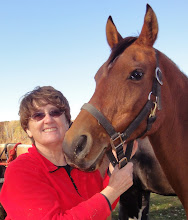John McCain has sunk to a new low when he degrades the importance of children's sex education. Barack Obama is right in advocating for healthy sex education.
Parents who educate their children sexually give them a life-long gift. When parents avoid talking about sex with their children or dismiss their questions and concerns, children are left on their own.
Information about sex that is available to them through peers, observation, movies, and the internet is distorted and harmful. It is up to parents to give children correct information.
Fostering children's healthy sexual development takes time and effort. Parents may have to deal with their own discomfort. The price for avoiding sexual topics is high. Children are left on their own to interpret the confusing and often destructive messages that they get from peers, the mass media, and the internet.
Parents are and should be concerned about what their children are learning. Often their sources of information about sexuality are distorted and even frightening. Children may get the wrong idea about sex. If they don't learn otherwise, they may act in ways that hurts them and other people. It is up to parents to give children correct information.
Talking to children about sexuality can open up many channels of communication. A young boy said to his mother, “If I can talk to you about sex, I can talk to you about anything.”
Start Early
Parents would do best to start sex education early. Children are being educated informally through their everyday experiences. Sex education starts in infancy. For example, when parents teach very young children the names of various body parts, they can teach them correct terms, such as vagina, vulva, penis, anus, buttocks, and breasts. They can also use “pet” and family names for sexual body parts, but knowledge of the more formal terms is important, too.
Pet names are part of family lore and normalize sexual body parts. However, when children go to the doctors or if they have problems with others about sexuality, it is important that they can use terms that others understand.
Healthy sex education helps prevent child sexual abuse. A child who has had a good sex education is more likely to communicate clearly and without shame that someone has violated them sexually.
Sexual Touching
Infants and toddlers often touch their sexual body parts and may touch the sexual body parts of other children. Parents have important roles to play in helping children know the difference between public and private sexual behaviors and appropriate and inappropriate behaviors.
Parents can instruct children that it is okay to masturbate, but that is a private activity not done in front of others. The places to masturbate or touch their sexual body parts are the privacy of their bedrooms or in the shower.
Sexual Respect
Parents have an important task of teaching children to respect the personal space and the sexual body parts of others. A no touching rule can be taught. “Please do not touch others on their sexual body parts.” “Keep your hands to yourself.” “If someone touches your sexual body parts, please tell me.” These the kinds of guidelines that parents can provide children so that children are safe and are safe to be around.
Simple Explanations Satisfy Curiosity
Preschoolers have questions about where babies come from. Simple explanations satisfy their curiosity. Questions about the origins of babies are intriguing to children, and they are delighted to find out the answers.
Sophisticated Information
As children get older, the kinds of information they require gets more sophisticated, such as what kinds of behaviors are appropriate at what ages. For example, when is kissing okay? Necking? Petting? How can you tell if he or she loves you? What to do if someone pressures you to have sex?
What if you like that person or think you are in love? These are difficult topics to broach with children and teens. Parents have a responsibility to help children develop into responsible and responsive human beings who celebrate their sexuality but who also do not exploit others or do not know how to stop others from exploiting them.
No Excuses
Children understand and appreciate parents' efforts. Embarrassment is no excuse for parents not to educate children sexually. Some parents avoid and dismiss children's concerns and questions. That hurts children's developing sexuality could lead to cut-offs in parent-child communication.
There are a lot of helpful books, dvds, and websites that can help parents talk to their children about sexuality. It's important for parents to push through their discomfort for the sake of their children.
Summary
Fostering children's healthy sexual development is a life-long gift that parents can give their children. It takes time and effort. Parents have to deal with their own embarrassment. The price for avoiding sexual topics is high. Children are left on their own to interpret the confusing and often destructive messages that they get from peers, the mass media, and the internet. Remember the boy who said, “If I can talk to you about sex, I can talk to you about anything.”
Fiona Speaks is a pseudonym of Jane Gilgun, Ph.D., who is a professor, School of Social Work, University of Minnesota, Twin Cities. This blog is a way for me to connect with people who like to talk about ideas and how to connect with what's important. To do this, I want to examine and demystify the blocks I see to building connections and community with other people. Join me.
Subscribe to:
Post Comments (Atom)
The blog is for witty people who want to build community. In this world that seems to be so full of witless efforts to self-aggrandize, I want to promote the simple idea of human connection.

No comments:
Post a Comment